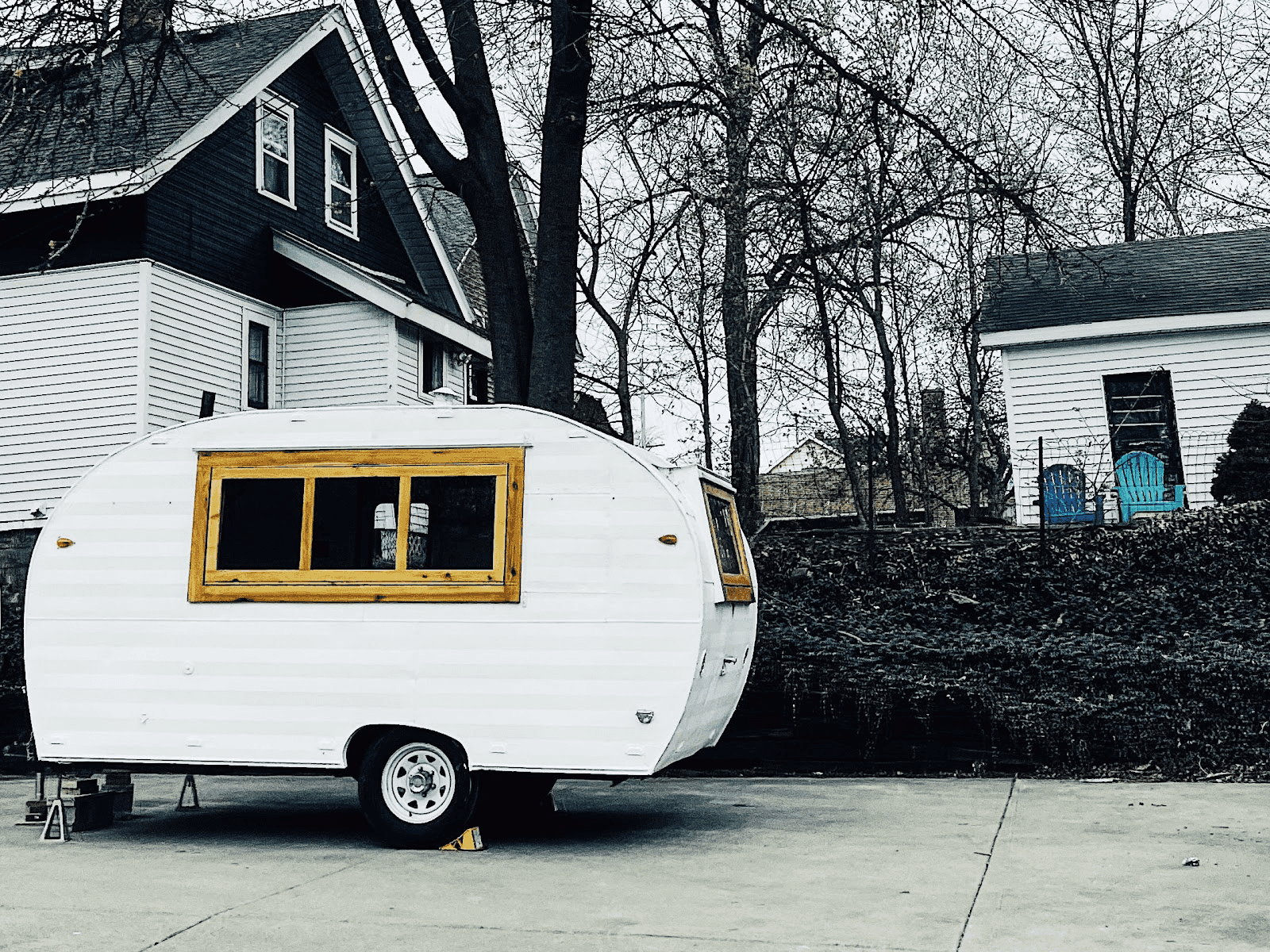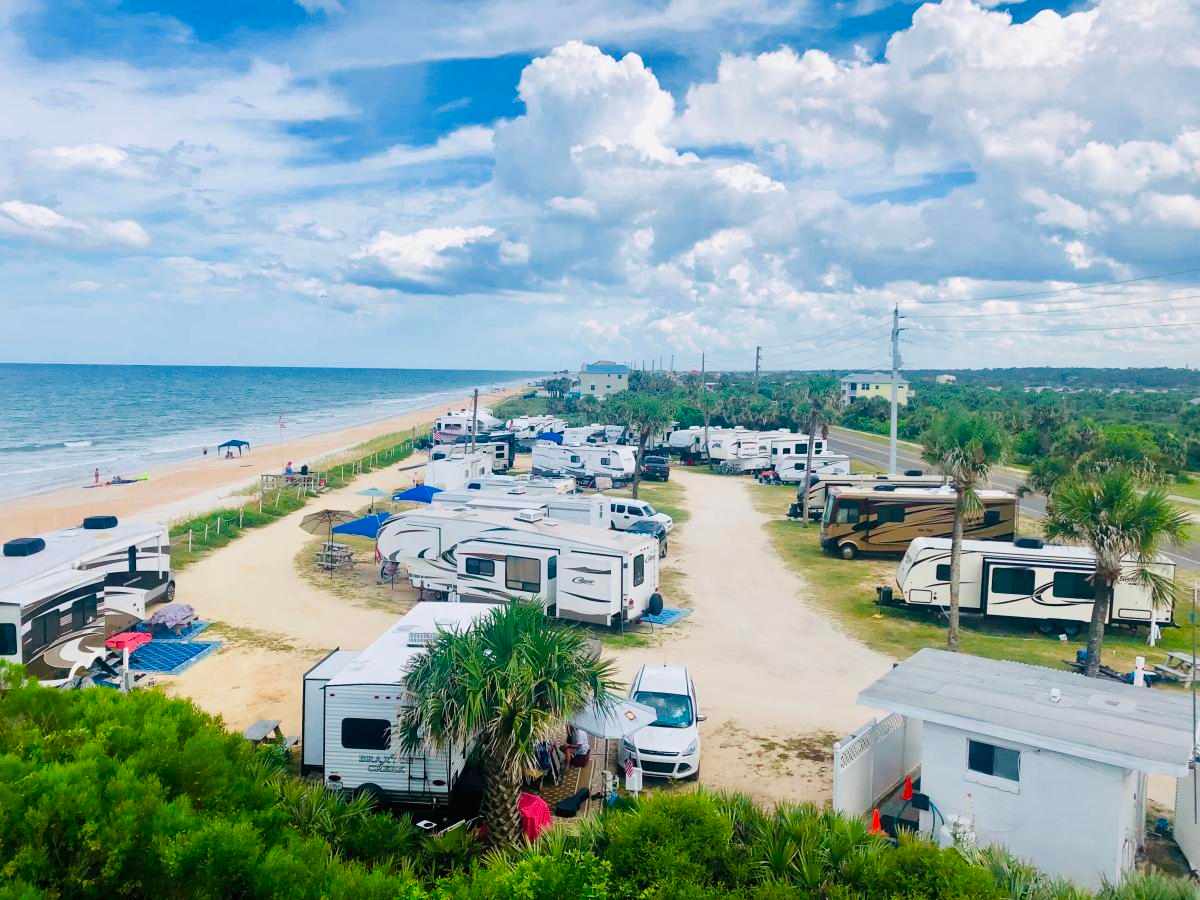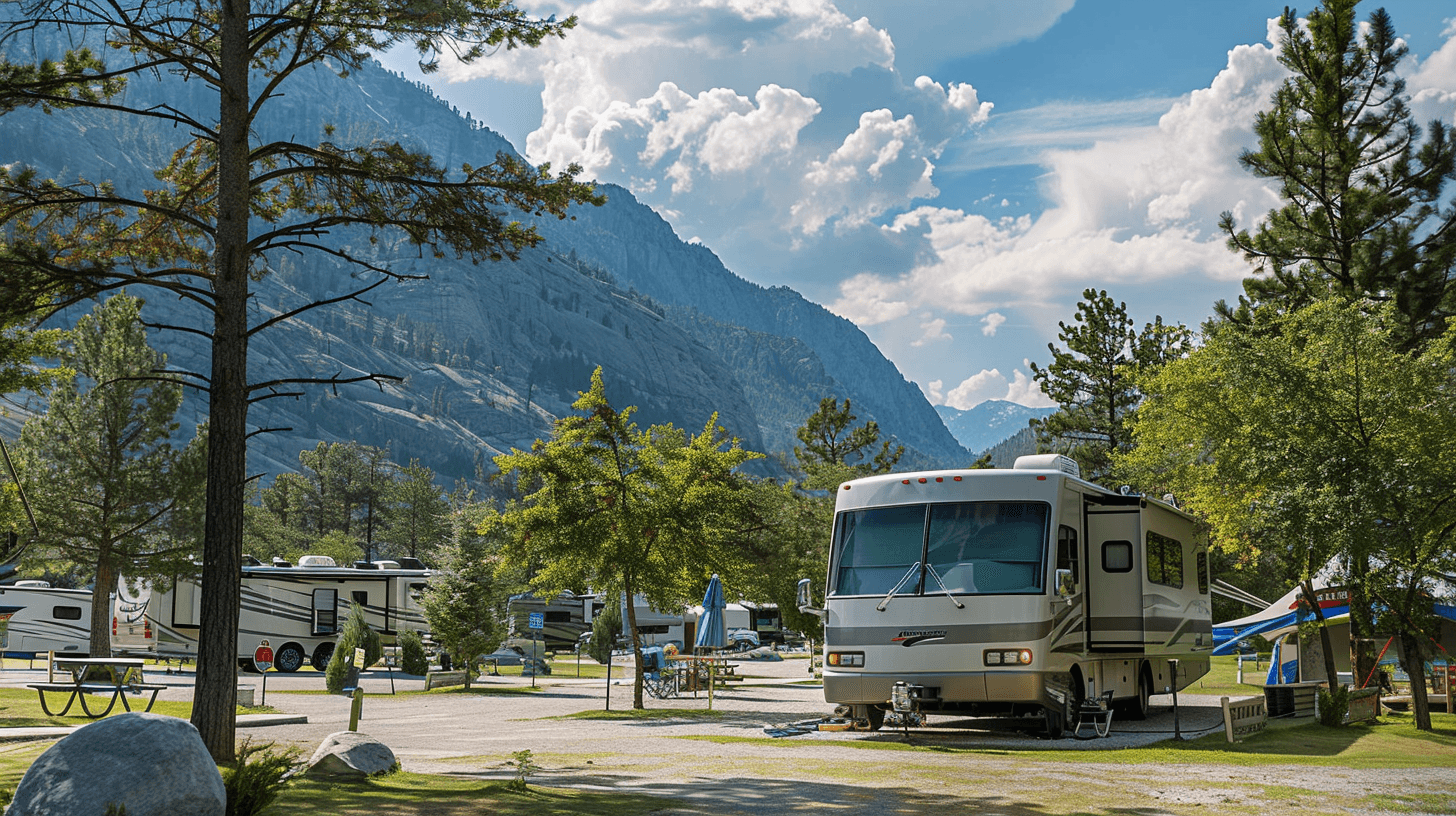The call of the open road is irresistible to many, presenting a vision of freedom where each day brings a new horizon. RV living encapsulates this nomadic dream, but it’s accompanied by financial considerations that must be carefully planned. Understanding the cost of RV living is essential before setting out.
Try Before You Buy: RVs For Rent Near You
The Cost of Luxury vs. Budget-Friendly Campgrounds
The type of campgrounds you select will significantly impact your budget. Luxury RV campgrounds are comparable to high-end hotels, featuring a range of amenities, with prices starting at around $80 per night. For those seeking a more economical approach, budget-friendly park costs can range from $20 to $40 per night.
KOA campgrounds offer a balance, with an average cost of $57 per night, including various amenities and the security of a well-established brand. Your choice will hinge on your comfort preferences and how much you’re willing to invest in convenience and additional services.
Average Camping Costs Over Time
For full-time RVers, understanding long-term costs is crucial. Over six years, the average camping cost has been about $24 per night. This average is a valuable benchmark for budgeting, and long-term stay discounts can further reduce this daily rate.
Including utilities, the monthly average cost for campgrounds with necessary hookups can be around $900. This estimate is important for those planning to embark on full-time RV living, offering a realistic perspective on the lifestyle’s financial demands.

Maintenance and Upkeep Expenses
Maintaining an RV, your home on wheels, is essential. Annual professional RV maintenance is usually between $250 and $500. Regular servicing extends your RV’s life and helps avoid expensive future repairs. Maintenance covers various needs, from engine checks to appliances, ensuring a smooth journey.
Fuel, Utilities, and Miscellaneous Costs
Fuel is another significant expense for RVers, with average annual costs varying widely depending on RV type and distances traveled. The national average of annual RV maintenance costs is around $1,500. That too can vary significantly depending on your warranty (or lack thereof), age of your RV, and more.
Utilities, including electricity, water, and internet, can vary from $100 to $300 per month, influenced by travel patterns, RV efficiency, and personal usage. These can also be included in price of your campsite depending on the RV park.
Storage costs for the RV during periods of non-use can also accumulate, varying by location and storage type—whether it’s indoor, outdoor, or climate-controlled.
Comparison of Van Life and RV Life Costs
Choosing between van life and RV life depends on personal preference, comfort, and budget. Van lifers may spend between $800 – $2,000 per month, often less than RV living due to the smaller space and fewer amenities. RVs, offering more space and convenience, typically command a higher cost of living.
Travel Trailers vs. Motorhomes: A Cost Analysis
Choosing the right type of RV impacts your budget significantly. For those considering a travel trailer, you can expect average living costs to range between $825 and $1,750 a month. These figures give a broad look at potential living expenses, including campground fees, utilities, and other regular costs. Living in a Class C motorhome, known for more space and amenities, can cost between $1,500 and $3,000 a month. This increase reflects the additional comfort and convenience that comes with larger motorhomes, which can be a worthwhile investment for those seeking a more home-like environment on the road.
Travel trailers usually have lower upfront and maintenance costs compared to motorhomes. This affordability makes them an attractive option for those new to RV living or travelers who prefer a more budget-conscious approach. The initial price for a new travel trailer can start at $10,000, while a new fifth wheel can range from $40,000 to over $200,000, offering a variety of options for every budget.

Depreciation and Long-Term Investments
Considering the long-term financial implications of RV ownership, including depreciation, is important. RVs lose value over time, which can affect your financial planning. Travel trailers and fifth wheels have different price points and depreciate at various rates. While the initial cost of a travel trailer can be much lower than that of a fifth wheel, both types of RVs will depreciate, and this should be factored into your budgeting.
To maximize your RV’s resale value, it’s critical to maintain it well and make smart choices about upgrades and repairs. Good maintenance can help reduce the loss when it’s time to sell or trade-in your RV for a new model or different type of adventure.
Expert Perspectives on RV Living Costs
Experts in RV living bring valuable insights into the financial aspects of this lifestyle. Marc and Julie Bennett, creators of RVLove and seasoned RVers, share their perspectives:
“Living in an RV full-time isn’t just a lifestyle change; it’s a financial strategy that demands careful budgeting and an understanding of the costs involved.”
Their advice is reflected in the experiences of countless RV enthusiasts who have found that a successful transition to RV living involves a clear understanding of expenses and a commitment to managing them effectively. Living on the road requires adaptability not only in where you sleep each night but also in how you manage your finances.
Key Takeaways
- Luxury Campgrounds: Starting at $80/night with premium amenities.
- Budget-Friendly Parks: $20 – $40/night, offering basic facilities.
- KOA Campgrounds: Averaging $57/night, well-equipped and reliable.
- Long-term Costs: $24/night average from six years of full-time RV living.
- Maintenance: Annual professional upkeep between $250 – $500.
- Maintenance and Utilities:
- Maintenance: Approximately $100/month.
- Utilities: $100 – $300/month (unless included in campground price).
- Van vs. RV Life:
- Van Life: $800 – $2,000/month.
- RV Life: Generally higher due to size and amenities.
The allure of life on the road is strong, but it comes with a set of financial responsibilities that are as crucial to your adventure as a map and a compass. With careful planning, a realistic budget, and an understanding of the cost of RV living, this lifestyle can be as rewarding financially as it is personally.
Whether you’re drawn to the minimalism of van life or the relative luxury of a motorhome, the key to success is to plan your budget as meticulously as you plan your route. With the right financial strategy, the RV lifestyle can offer a sense of freedom and joy that is unparalleled – take it for a test drive here.








